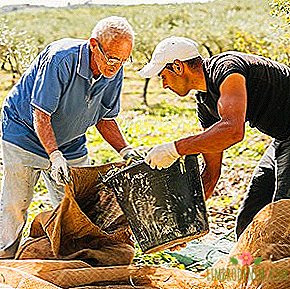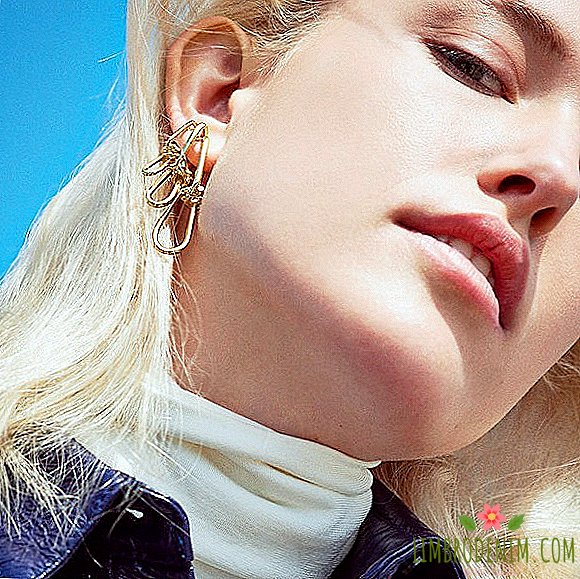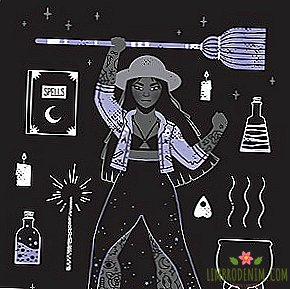Autumn in Italy: Gastro-tourism and olive picking in Sicily
As Alexander Genis once wrote, Italian cuisine is not lucky to become famous. In fact, the original peasant cuisine spent by the tourist moth generally has little to do with what is served in the standard catering under the sign "Italian". Where does the right lunch start? From olive oil, generously poured on coarse, preferably brown bread. In another trip to the north of Italy, my friend handed me a sandwich, noticing that the oil is made by her friend and now he will come for a glass of wine.

As he walked, I remembered that I knew about olive oil. It turned out that especially nothing - except that in the fashionable quarters of Istanbul, the hipsters trade in olive-wood cutting boards. I knew absolutely nothing about the owners of the olive plantations, the greater was my surprise when Massimiliano turned out to be a friendly, red-skinned fellow with a degree in psychology. Having learned that his family owns an olive farm somewhere deep in Sicily, we in Italian-English surzhik found out when the next harvest, promised to definitely come, and in response to hospitality - beautiful photos. The next time we met in six months. He thought we were joking.
When I come to Italy, I always live in Genoa, so it happened. In general, when booking accommodation on the Airbnb service, try to make friends with the owners - then there is a high probability that next time you can rent your favorite living space cheaper or even bypassing the site, if trust has been established between you. The airport named after Christopher Columbus is more like a parking lot than an airfield, but cheap flights from Ryanair to Palermo and Trapani fly from it to Sicily: if you plan everything in advance, you can buy tickets for 55 euros both ways. In addition to the plane, there is also a ferry to Palermo, 22 hours on the road and about a hundred euros one way, and a night train through the whole country. Yes, it takes 17 hours, but the train crosses the strait on the ferry: the cars are separated, they are loaded on the ferry, and in this form you are sailing with the train to the port of Messina. At least once in a lifetime it's worth a try.










Sicily, recommended to us by everyone upon arrival as a promised land, is an ambiguous place. From the window of the train, bus or car you can see beautiful landscapes with rows of orange groves and beds with artichokes. And if you move around the island in spring, then all this will also bloom the brightest pink and yellow, it is difficult to come up with picturesque. The misfortune is that the train, bus and other transport will inevitably bring you to the city, which affects with its if not wretchedness (like Castelvetrano), then with some kind of unwelcome (Trapani, for example). Israeli Zamkade, not Italian cities. Not at home, but a jumble of shoe boxes in the parent closet. In short, sadly and no sea saves: on the beaches of garbage and dogs digging in it.
It is good that among these yellow, flaky buildings we had to stagger for a short time: soon the magic olive farmer had to come after us and take us to our temporary olive farm for temporary slavery. In the meantime, the farmer was rocked by the Genoa ferry - Palermo, we still tried to figure out the charms of Trapani - who were not slow to appear in the form, of course, of food. In Trapani, as in any Sicilian city, the Arabs were fairly noted (it was in the tenth century) and left an excellent culinary heritage. One of the masterpieces is called Cous cous di pesce - that is, couscous with fish and marine reptiles. It is worth ordering it with zuppe - a special sauce in a mini-tureen with a polnitsa. The soup is gradually added to the couscous, so that it is not too dry. Yummy.
A little later, we realized that the whole beauty of Sicily, its essence, is hidden deep inside, away from the eyes of strangers. In the same Castelvetrano, in the roadside cafeteria the best in Sicily arancino is an orange in translation, but not it, but a fried rice ball stuffed with ham and cheese (al burro) or meat with peas (al carne). All in the same Trapani at a certain address you need to enter the unobvious door and find yourself right in the kitchen, where the best cannoli in Sicily, crispy rolls with ricotta cream, will be made at your disposal. But this is necessary to know, but few will tell. In Sicily, in general, everyone is trying to keep quiet, and God forbid you get lost and start asking for directions to such a gentleman. They will not say. You never know who are you and why are you going to him.
If you do not want to eat (which is extremely strange in Italy), but prefer sightseeing, then they too, of course, are in Sicily, and they are also completely unobvious. In Trapani, the cable car will take you high up the mountain to the old village. From Marsala, you can travel about forty minutes along the coast to the salt mills and beautiful sunsets. A regular train from Palermo will take you to Cefalu, where Aleister Crowley’s house has been preserved. Although the local silent about it.

Massimiliano, who met us, battered by the journey, was also silent, sluggishly responded to questions and wanted only one thing: to get there, the second day on the road. In a couple of hours we will be in his native village: he is a social worker on vacation and, like us, he goes to the sources and enjoy agricultural work. His home town of Caltabellotta is difficult to reach without a car, is high under the clouds on a steep mountain, the buildings there are practically piled up together like a block of cubes, illuminated by an orange sun. From the top you can see the Mediterranean Sea in the distance.
Here Massimiliano introduces us to the family. The head of the house - a thin but strong old man in his eighties, Pinot, was immediately nicknamed Grandfather. His wife Peter, their daughter Christina, her husband Pino, their, Cristina and Pino, the child of Sebastiano. They say there is still an older brother, Massimiliano - Petro - and his son, also Pinot. The first question of the family to us is whether we eat meat or are subject to foolish vegetarianism. We are not exposed, the family is happy, especially delighted Grandfather, finally the son brought back normal girls. The second question is whether we ate pasta today. If not, then urgently need to eat pasta, sit down. Sicilians in matters of food are tempted more than the rest of the Italian population: pasta is the cornerstone of the village table and in general the most important food of the day, and our ideas about real pasta are extremely primitive.
Only the Olive People live in Caltabellotte: either tree owners or oil-mash workers. October is the time of harvest, men, women and children are the most collected, no southern laxity, everything is serious. Bars open at six in the morning to provide workers with a cup of espresso and fresh news. You need to be in the field at seven at the latest while the sun is still not burning. In the possession of the family Massimiliano hundreds of trees, with the collection must be sorted out before November. The process is grandfather Grandfather: he comes to work before everyone else with an employee named Marion - a militant gypsy with biceps and tattooed names of two daughters on his forearm. Marion glances at us with interest, but she acts with pleasure and as a result turns out to be a nice guy.









Collecting olives is very simple. You give out a small plastic rake, they need to "brush" the branch. Olives, so brushed in this way, fall on specially laid nets. We grasped the science of combing quickly, but did not ask about the nets, there is some kind of clever system for putting them in so that nothing is poured by. Then these networks are formed into a bag, the contents of which is poured into the bag. Approximately one hundred kilograms of olives are harvested from one tree, out of these hundred, on average, 15 liters of oil, green and fragrant, come out. Togo, which you eat on fresh bread and sprinkle with grated parmesan. That is how the Sicilian forefathers bequeathed to try the oil of the new crop.
At nine in the morning there is a small coffee and cake break, at noon - an entire hour for lunch, first, second, dessert, coffee, then up to four hours you meditatively scratch the tree ankle-deep in clay (here you are not Tuscany with lawns, everything is harsh). In four days, all work is stopped, whether you combed a tree or did not comb it - basta-basta, it's time to go home. The collected bags are loaded onto a tractor on a track, and this tank Grandfather sends to the house. It turns out a full 9-hour working day. At dinner, Grandfather shows me two pills. One, he says, from diabetes, the second - from pressure: at the same time he drank three honest cups of coffee a day, turned the bags around and did not rest for a second.
His energy should be envied: at dinner, he manages to remember both about his youth in Germany, and to chastise employees, and tell him that this year he celebrated his golden wedding and took his wife to New York. Petra is excited to show me pictures at the Tiffany store and views of Fifth Avenue. Pino himself did not appreciate America. And they spoil the pizza, and they do not know how to cook pasta.

I was very worried about the question: where do the bags of olives collected during the day go to? But where. At five in the evening, trucks start to gather around a small factory, people unload their crops into special containers, each signing where theirs are. Olives are washed and ground into pasta in different aggregates, and water and oil are squeezed out of it in the press. Water to the right, product to the left. You need to try it on your finger and draw in more air, then an incredible aftertaste remains in your mouth, a whole symphony orchestra of the name of olive oil. They are all fanatics here, says Massimiliano. Usually the oil is pressed at 27 degrees, and they have only 23, very cold spin. And now, after all this, you need to drink a glass of something strong.
A glass, or rather a tall glass with a very thick and heavy bottom, is given in the bar by Max's older brother, Petro. The bar is very important, it is the center of socialization, here is a newspaper stand, cigarettes are sold, there is a lottery, slot machines and other important elements of Sicilian leisure. Petro, who works from six in the morning, by eight in the evening begins to speak for weariness, but enters into a difficult conversation with us. We are trying to be responsible for Putin and Syria and to demonstrate our knowledge of the modern political scene in Italy. It turns out badly. At the stage of discussion of the composition of the cabinet we surrendered and were hastily evacuated.
The pleasure of picking olives and immersion in agricultural reality, we stretched for three days, then went to the mainland for other gastronomic pleasures, the benefit of Italy has them in abundance. In Genoa, we received a weighty package from Massimiliano, a five-liter canister of oil from the new crop. They say that Nikolai Vasilyevich Gogol brought back a supply of olive oil from Italy and carried it with him in a jar to St. Petersburg restaurants to fill salads and pasta himself. The classic is clearly versed in culinary issues. And he told us.





